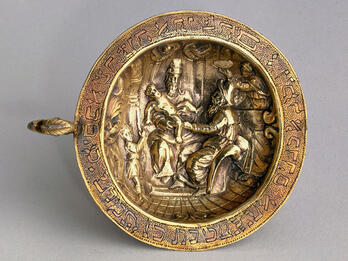Human Follies: For Sukkot
Notes
[Apparently: birds flock to it. Note also that the word zemir, here translated “song,” can also mean “pruning,” which might be the intended meaning here.—Trans.]
[See Lamentations 2:6; the word “booth” refers to the festival of Sukkot, when this is to be recited.—Trans.]
[Solomon, to whom the Book of Ecclesiastes is attributed.—Trans.]
[See b. Pesaḥim 119a, where Koraḥ is described as extremely wealthy.—Trans.]
[See b. Sanhedrin 106a.—Trans.]
[That is, of the wealthy people.—Trans.]
[That is, if the poor have bitter experiences in life, and they turn to God out of that bitterness, they will merit to ascend to heaven, unlike the sweet honey of the wealthy.—Trans.]
[This may be another allusion to Sukkot: on this holiday, one lives in a temporary, flimsy dwelling, so the poet speaks out against constructing fancy, stable buildings.—Trans.]
[A ladder or staircase to enter a building.—Trans.]
[Literally topaz of Ethiopia (Job 28:16).—Trans.]
Credits
Joseph Yedidya Carmi, “Human Follies: For Sukkot,” in Sefer kenaf renanim (Wings of the Ostrich) (Venetia: Bragadini, 1626), pp. 80b–81a.
Published in: The Posen Library of Jewish Culture and Civilization, vol. 5.



